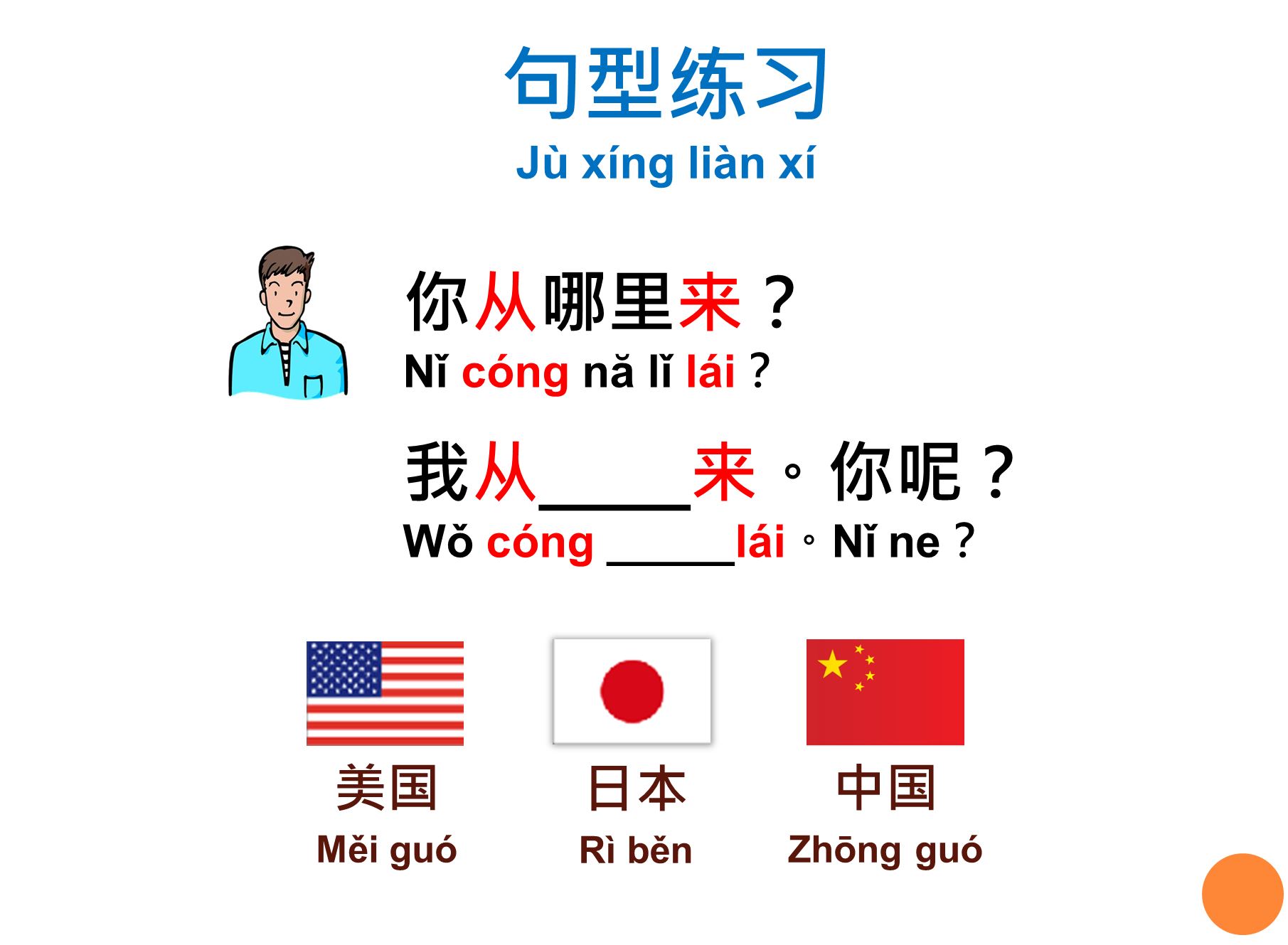My name is Efrain, and this is my weekly column on my journey to becoming fluent in Chinese with TutorABC Chinese. You can check out why I want to learn Chinese in my introduction here.
 Where are you from, where are you going, what brings you here? These are all questions you may ask when you are getting to know someone. Last week, I learned each continent of the world and now can put those vocab words to use when answering some of these new questions I was taught. For example, "I am from North America. 我从北美洲来 (Wǒ cóng běi měi zhōu lái). I am going to Asia. 我要去亚洲 (Wǒ yào qù yà zhōu)."
Where are you from, where are you going, what brings you here? These are all questions you may ask when you are getting to know someone. Last week, I learned each continent of the world and now can put those vocab words to use when answering some of these new questions I was taught. For example, "I am from North America. 我从北美洲来 (Wǒ cóng běi měi zhōu lái). I am going to Asia. 我要去亚洲 (Wǒ yào qù yà zhōu)."
In this lesson, I was taught how to ask those questions, along with new vocabulary that I could use to respond.
Conversational Phrases: 你从哪里来 (Nǐ Cóng Nǎ Lǐ Lái)? Where you from?

After introducing yourself, typically what comes next is another simple pleasantry like 很高兴认识你 (Hěn gāo xìng rèn shí nǐ). As a beginner, this was one of the first phrases I made sure to learn. It means "Nice to meet you." After that, you can ask:
你从哪里来? (Nǐ cóng nǎ lǐ lái) Where are you from?
你为什么来____? (Nǐ wèi shén me lái ___) Why did you come to ______ ?
你要去哪里? (Nǐ yào qù nǎ lǐ) Where are you going/want to go? (definite)
The last question, 你要去哪里 (Nǐ yào qù nǎ lǐ), was a little bit more complicated for me to understand. The more I learned, the more detailed questions I started to have and the more differences I began to notice.
Same But Different? 为什么 (Wèi Shé Me)???
Here are some of the words that I remembered from previous lessons and my consultant was nice enough to explain to me:
要(Yào) vs想 (Xiǎng): Both mean "want", but have different connotations.
Here's an example: "Can I come over," versus "I am coming over."要 (yào)" is a definite. When saying,“我要去亚洲 (Wǒ yào qù yà zhōu),” I am saying (or even telling) someone that I will go to Asia. In contrast, using想 (Xiǎng), would mean "I would like to go" and can be used as more of a request. This is what I normally use when ordering at a Chinese restaurant.
Related: How To Order Food In Chinese
去 (Qù) vs 到 (Dào): Both mean "go," but are used in different circumstances.
去 (Qù) is often used to signify that you are going to a place to do something, whereas 到 (Dào) is usually used to describe the act of going to a place.
厅 (Tīng) vs 听 (Tīng): Both pronounced the same, but have different meanings.
Like English, Chinese also has plenty of homophones (hooray). The word厅 (Tīng) means hall and is used in the word for restaurant (餐厅 meaning meal hall). 听 (Tīng), the word for "listen." For example, "to," "too," and "two," all sound the same but are spelled differently, giving them different meanings.
Conclusion
Each week, it seemed I have more and more questions of my own. Every week, prior to taking my next lesson, I do my homework to review. Well, it's in part to review, but also so I know what I am talking about.
My main struggle in this lesson was seeing how different words can mean the same thing. They have slightly different connotations, so very subtle differences in their usage. Learning these differences has assisted in the process of becoming fluent in Chinese.
Thanks for reading my column! Try practicing some of these Chinese grammar sentences in the comments below! Tune in next week to see what I learn next.
Vocabulary List
|
高兴
|
Gāo Xìng
|
Happy
|
|
认识
|
Rèn Shí
|
To Know (Formal)
|
|
朋友
|
Péng Yǒu
|
Friend
|
|
从
|
Cóng
|
From
|
|
哪里
|
Nǎ Lǐ
|
Where
|
|
为什么
|
Wèi Shé Me
|
Why
|
|
来
|
Lái
|
Come
|
|
去
|
Qù
|
Go
|
|
要
|
Yào
|
Want (definite)
|
|
读书
|
Dú Shū
|
Study
|
|
旅行
|
Lǚ Xíng
|
Travel
|
|
工作
|
Gōng Zuò
|
Work
|
|
图书馆
|
Tú Shū guǎn
|
Library
|
|
博物馆
|
Bó Wù Guǎn
|
Museum
|
|
餐厅
|
Cān Tīng
|
Restaurant
|
|
美国
|
Měi Guó
|
American
|
|
日本
|
Rì Běn |
Japenese
|
|
中国
|
Zhōng Guó
|
Chinese
|
Like this post? Join uS to learn more!